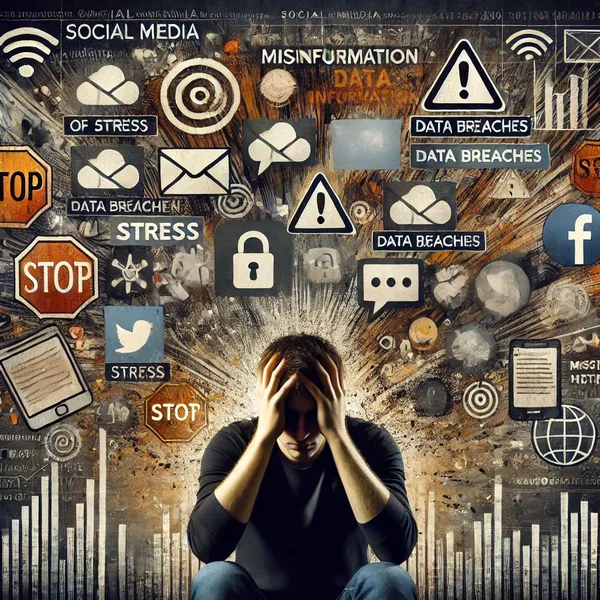Social media platforms have become an integral part of modern life, shaping how we communicate, share, and engage with the world. Despite their widespread adoption and many advantages, the drawbacks of social media platforms are significant and deserve careful consideration. From mental health challenges to data privacy concerns, these platforms pose risks that can affect individuals and society as a whole.
This article delves deeper into the disadvantages of social media and offers insights into how to navigate these challenges.
1. Mental Health Impacts
Social media use has been linked to a range of mental health challenges that can affect users of all ages.
- Comparison Culture:
Social media encourages comparison by showcasing idealized, curated images of people’s lives. Whether it’s influencers flaunting luxurious lifestyles or friends posting milestone achievements, the pressure to measure up can lead to low self-esteem, anxiety, and depression. - Cyberbullying:
Social media enables anonymous harassment, making cyberbullying a pervasive issue. Victims often experience significant emotional distress, which can escalate to more serious consequences like self-harm or withdrawal from social interactions. - FOMO (Fear of Missing Out):
Constant exposure to others’ activities fosters the fear of missing out, leading users to feel left behind or excluded. This anxiety can drive compulsive social media use, exacerbating feelings of inadequacy.
2. Privacy and Data Security Risks
Social media platforms are notorious for their lax approach to user privacy and data security.
- Data Harvesting:
Social media companies often collect massive amounts of personal data for targeted advertising. While this may seem harmless, it raises concerns about who controls this data and how it’s used. - Identity Theft:
Oversharing personal information like birthdates, addresses, or even travel plans makes users vulnerable to identity theft or fraud. Cybercriminals can exploit this information for malicious purposes. - Data Breaches:
Even major platforms are not immune to hacking incidents. Data breaches expose sensitive information, putting millions of users at risk.
Tip: Use strong, unique passwords for each account and enable two-factor authentication to add a layer of security.
3. Time Consumption and Productivity Loss
Social media is designed to be addictive, often leading to excessive time spent scrolling through feeds.
- The Attention Economy:
Social media platforms use algorithms to keep users engaged, showing content that triggers emotional responses. This “endless scroll” feature leads to wasted hours that could be spent more productively. - Workplace Distraction:
Notifications and the urge to check social media can disrupt workflow, reducing focus and productivity. Many employers report concerns about employees spending too much time on these platforms during work hours.
Solution: Consider using apps that monitor and limit screen time or block social media during designated work periods.
4. Spread of Misinformation and Fake News
Social media is a double-edged sword when it comes to information sharing.
- Rapid Dissemination of False Information:
The ease of sharing posts means that misinformation can spread like wildfire. Fake news often garners more attention than verified content, influencing public opinion and fueling divisive debates. - Algorithmic Bias:
Platforms tailor content to users’ interests, creating echo chambers where individuals are exposed only to viewpoints that reinforce their beliefs. This can lead to polarization and hinder meaningful dialogue.
Tip: Always fact-check information from multiple credible sources before sharing.
5. Effects on Relationships
While social media can help maintain long-distance relationships, it can also create tensions in personal connections.
- Reduced Quality of Interactions:
Spending excessive time online detracts from meaningful face-to-face communication. Many people feel neglected when loved ones prioritize their phones over in-person interactions. - Jealousy and Misunderstandings:
Seeing a partner’s interactions with others online can lead to unnecessary jealousy or misinterpretation of intentions, often causing relationship conflicts. - Publicizing Private Matters:
Oversharing personal issues on social media can escalate problems and invite unwanted opinions or interference.
6. Physical Health Consequences
Beyond mental and emotional effects, social media overuse has physical repercussions.
- Digital Eye Strain:
Prolonged screen time can lead to symptoms like dry eyes, headaches, and blurred vision. - Sedentary Lifestyle:
Hours spent sitting and scrolling through social media contribute to a lack of physical activity, increasing risks of obesity and other health conditions. - Poor Posture:
Constantly looking down at phones or sitting for long periods affects posture, leading to back and neck pain.
Solution: Take frequent breaks, use ergonomic setups, and practice the 20-20-20 rule: every 20 minutes, look at something 20 feet away for 20 seconds.
7. Career and Reputation Risks
Social media blurs the line between personal and professional life, creating risks for users’ careers.
- Unprofessional Content:
Employers often review candidates’ online profiles. Posting inappropriate content or expressing controversial opinions can negatively impact job prospects. - Confidentiality Breaches:
Sharing work-related matters without permission can lead to disciplinary action or even legal consequences. - Reputation Damage:
A single ill-considered post can tarnish your reputation, as screenshots ensure that content can live on indefinitely, even if deleted.
Tip: Maintain a professional tone on platforms like LinkedIn and think twice before sharing anything potentially sensitive.
8. Environmental and Ethical Concerns
Few people consider the environmental or ethical implications of social media use.
- Energy Consumption:
Running data centers for social media platforms requires vast amounts of electricity, contributing to carbon emissions. - Exploitation of Content Creators:
Many creators face burnout from the constant pressure to produce content, often with little monetary reward. - Algorithm-Driven Issues:
Algorithms prioritize engagement over well-being, amplifying divisive or harmful content for profit.
Solution: Support ethical practices by following platforms and creators who prioritize sustainability and user well-being.
Conclusion
Social media is an invaluable tool, but it comes with a host of disadvantages that demand attention. By understanding and addressing these challenges, users can minimize harm while still enjoying the benefits of staying connected.
Remember, it’s not about quitting social media entirely—it’s about using it wisely. Take control of your online habits, protect your privacy, and prioritize your well-being to create a healthier relationship with the digital world.
